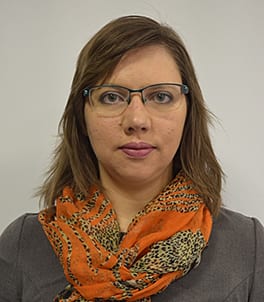 Baiba Kačanova received the 2016 Aina Birnitis Dissertation-Completion Fellowship in the Humanities for Latvia. In March, Baiba received her PhD from the University of Liepaja.
Baiba Kačanova received the 2016 Aina Birnitis Dissertation-Completion Fellowship in the Humanities for Latvia. In March, Baiba received her PhD from the University of Liepaja.
I am an English teacher and I have been teaching English as a second language for about 14 years in Latvia. I really enjoy the process of teaching by looking for the most suitable methods, materials and approaches for each group because each group is different and a method which works well in one group might not be suitable for the other group. The most interesting thing is to find the right method and words to motivate students to study hard J It is also very pleasant when I meet my students about 5 years later – they have already finished school and they appreciate the knowledge they got in my lessons. Then most probably I am doing it right. My point of view is that the teacher can’t just stop and say “now I know everything I need.” There always should be a process of further development. I like to accept challenges in my life and I have taught English for different levels and various age, elementary and secondary school, as well as university students and adults)
I knew that I wanted to research teaching English as a second language. I only had to make a decision to do it in Pedagogy or Applied Linguistics. A that time, I already had master’s degree in translation and terminology so I was able to enter the programme of applied linguistics. My research, however, is in “lingvodidactics,” which means that it is interdisciplinary research (pedagogy and linguistics). The “lingvodidactics context of lexis” is interdisciplinary research that combines linguistic and pedagogic aspects of lexis. It discusses questions such as: how to select the vocabulary for teaching, how to organise the vocabulary, and methods how to teach vocabulary as well.
Now that I have completed my PhD dissertation, I plan to develop teaching materials based on the concept I have described in the third part of my research. I am really thankful for such a wonderful opportunity to get the fellowship because of that I was able to reduce my work load and to spend more time on my research, which would not have been possible without the fellowship.
